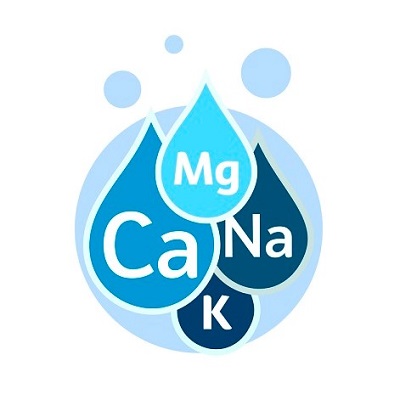 An important part of being healthy is having enough electrolytes, but far too many people don’t understand them and often go without the necessary ones. Electrolytes are a combination of nutrients that you need in your body to allow your muscles, heart, and other organs to operate properly. Here are the necessary electrolytes and how you can get more of them.
An important part of being healthy is having enough electrolytes, but far too many people don’t understand them and often go without the necessary ones. Electrolytes are a combination of nutrients that you need in your body to allow your muscles, heart, and other organs to operate properly. Here are the necessary electrolytes and how you can get more of them.
The Top Electrolytes
People often understand the basic principle of what electrolytes are and that you need enough of them, but don’t often know what constitutes an electrolyte. There are actually 7 different electrolytes you want to be sure you get enough of during the day, including some you may know and some that may surprise you.
The electrolytes include sodium, potassium, and magnesium as the primary 3 electrolytes. Then there are 4 others, including phosphate, chloride, calcium, and bicarbonate. All of them perform a really important function for improving your health.
Sodium
Sodium is probably the most commonly known electrolyte, even though it is often linked to poor health. While you don’t want to have too much sodium in your diet as it can lead to bloating, inflammation, and even heart problems, you also don’t want to suffer from extremely low amounts.
You do need some sodium to balance out your blood pressure. If you don’t think you are getting enough sodium, look at cured meats, salad dressing, and just regular table salt.
Potassium
You should also make sure you are getting enough potassium in your diet. Like many other nutrients, this electrolyte comes from a healthy diet with lots of fruits, veggies, and healthy fats. You can get more potassium with bananas and avocados, leafy greens, mushrooms, beans, and some types of fish and seafood.
Magnesium
Magnesium is responsible for your nerve function, maintaining muscle mass, and helping to give you energy. If you started a new diet where you aren’t getting enough magnesium, you might start feeling sluggish and dizzy, which is often from not having enough electrolytes like magnesium.
You can resolve this either by taking a magnesium supplement or eating foods like figs, bananas, nuts and seeds, fish, kale, beans, or even dark chocolate.
As you can see, deficiencies of electrolytes and other nutrients often come down to your diet. If you eat a healthy diet that is balanced and not too restricting, you should get everything you need without having to take a supplement.






